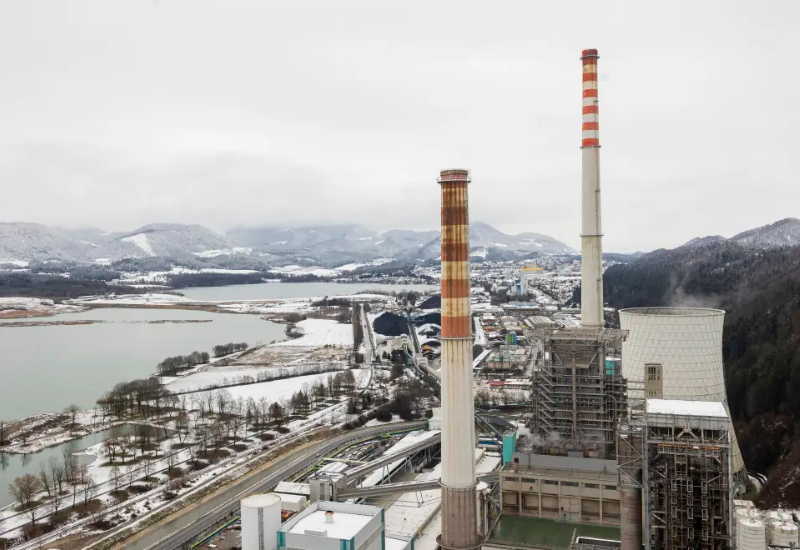
Šoštanj coal power station to be bailed out before phaseout
Slovenia's sole remaining coal power station and only active coal mine will be bailed out by the state as a stop-gap measure before the country's exit from coal, planned for 2033, CE Report quotes The Slovenia Times.
An emergency bill passed by the National Assembly on 12 December provides for €403 million in transitional financing for the Šoštanj power station and Velenje mine until 2027.
Both companies will be transferred from the state-owned power utility HSE to the Slovenian Sovereign Holding (SSH), which manages equity on behalf of the state.
District heating provider
From 1 January until 30 April 2027 the power station will primarily provide heat energy for the Šalek Valley (the municipalities of Velenje and Šoštanj), while electricity production will be secondary.
The plant is expected to operate at reduced capacity and produce 40-45% of the electricity it would have produced at full operation.
It will be allowed to sell 70-90% of the electricity to market operator Borzen according to a predefined production schedule, and the rest at market prices.
Because district heating is a public service, the state is allowed to subsidise it and the bill provides €324 million in financing, plus €79 million for outstanding loan instalments in this period.
Bill to rescue jobs
This is the only possibility to prevent the worst scenario - the power station and the coal mine having to enter insolvency, Bojan Kumer, minister of the environment, climate and energy, told MPs.
The two companies have been deep in the red for years, primarily because of the high cost of production in Šoštanj due to the high price of carbon allowances.
Šoštanj has been the subject of massive controversy since the construction of unit 6, which was beset by corruption and came at a price tag of €1.4 billion when it was completed in 2014.
In all years but one since then, it has been making losses.
Under EU state aid rules, their parent company HSE can no longer finance their losses, which is why the state has stepped in to not only secure district heating for the region but also prevent massive layoffs that risk destabilising the entire region.
There are 2,000 employees in the coal mine and and 400 work at TEŠ.
Coal phaseout planned in 2033
The government originally wanted to support the power station for five years but then decided to shorten the period to two and a half, during which time systemic laws governing the phaseout of coal will be passed.
The legislation has been welcomed by all the companies involved but the local communities affected say it is inadequate. They are seeking additional guarantees and billions in aid so that the region will not be left to ruin.
There was also a last-minute effort by the Social Democrats (SD), a coalition party for whom the Šalek Valley is a historical base, which tabled during the committee phase amendments under which the law would apply until 2032 and the mayor of Velenje would have a permanent seat on the TEŠ board.
But these were withdrawn in favour of a statement co-sponsored with the Freedom Movement calling on the government to pass legislation on coal phaseout and restructuring of the region in six months.
The statement, which is not legally binding, also says that the emergency bill in no way prejudges the year of coal phaseout, which is currently set at 2033 in multiple national strategic documents.
Opposition sceptical about fossil fuel exit
The bill was passed in a partisan vote. The coalition argued this was the only possible scenario to prevent a collapse of the Šalek Valley economy, even as MPs excoriated those who pushed for construction of unit 6 in the first place.
The opposition meanwhile cautioned against rash steps and several MPs warned that a momentous decision such as winding down such a large electricity generation facility should not have been fast-tracked.
Some MPs argued that Slovenia should instead work at EU level to bring down the price of emission coupons, which the Democratic Party (SDS), for example, says will be suspended at some point in the future because Europe will realise that phasing out fossil fuels is misguided.























